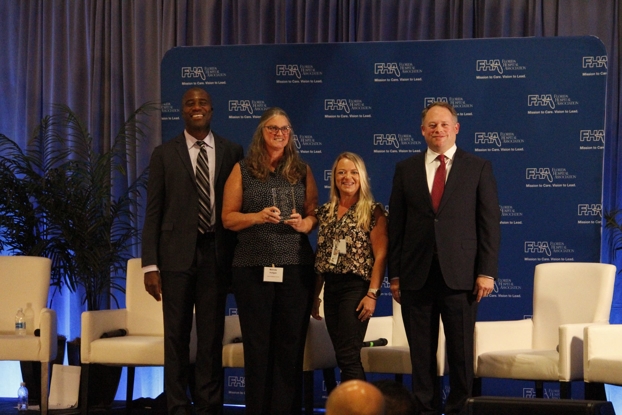The Power of Positive Healing Experiences
- Category: Healing Experiences, Parrish Medical Center
- Posted On:
TITUSVILLE, FLA (February 17, 2022) – The level of care and personal attention a patient receives from hospital staff can have a direct effect on patients’ attitudes, optimism, and commitment to recovery, key factors in Parrish Medical Center’s application of its mission on behalf of its patients, hospital officials say.
“Studies show that the attitude and approach of hospital staff can be positive or negative in patients’ short-term illness or injury responses and long-term improvement,” said Carlos Diaz, patient experience professional. “What we’re after are better outcomes for patients and their families - which goes hand-in-hand with our Parrish mission of Healing Experiences for Everyone All the Time® - and is seen in patients’ responses to their care.”
A Stanford University research project supports the importance of the healing experience concept. The Stanford Medicine website article describing the study opens with, “Patient mindset matters in healing and deserves more study, experts say; Researchers encourage more health care providers to place emphasis on the importance of people’s mindsets and social context in healing.”
Alia Crum, an associate professor of psychology, was the report’s lead author. Abraham Verghese, MD, was senior author. Said Crum, “A health care provider’s bedside manner is important, and what patients think and expect about treatments can influence health outcome.”
The article said, “Crum and her colleagues argue that the health care and education systems need to prioritize the role of psychological and social forces in healing.”
One such example at Parrish is of a man admitted to the hospital with multiple medical conditions; his condition was such that he needed to be repositioned every two hours, around the clock, by Parrish staff, referred internally as care partners. The patient’s health issues required cooperation and coordination of multiple hospital departments, clinical and non-clinical, each with a care approach that affected for the better the patient’s mindset.
“On several occasions, he has expressed immense gratitude for the ongoing care he’s received,” said Robert Chambers, coordinator of Parrish’s wound care program, “and he’s hopeful for the future.”
Such responses aren’t restricted to major events. Parrish care partners’ manner toward a woman who arrived at Parrish apprehensive about a stress test saw her attitude shift from dread to enthusiasm; afterward, she wrote a letter to hospital administration. “PMC made me feel safe and cared for,” she said. “You are all heroes on the front line, still doing excellent work for our community during difficult times.”
A woman whose step-daughter died from COVID-19, contacted the hospital for the care her step-daughter had received. She said, “Kindness, caring and empathy are something that can’t be measured on a balance sheet, but they certainly help the patient and families…”
In another instance, a patient who performs daily peritoneal dialysis at home was admitted for an infection. Afterwards, she thanked the nurse who had been principally in charge of her care stating that this nurse:
- “Made me feel confident about the whole team.”
- “Took time to be comforting.”
- “Answered my questions. She really listened to me.”
- “Was the mom I needed the moment I needed her. When you see her, give her a hug for me.”
Building optimistic attitudes for patients through how care is provided is something that has long been known in health care, though the question is how many health care organizations make it a focus of their care. An ABC News report from 2001 explored positive patient thinking and how to promote it.
“An optimistic attitude can do wonders for patients' recovery, according to researchers who reviewed 16 studies that looked at patients' attitudes toward health. The studies spanned 30 years and looked at patients' attitudes after surgery.
"This mind-body connection that we have been toying with for the past couple of decades really does have hard science behind it," (then ABC News medical correspondent Dr. Nancy) Snyderman said.
Diaz said that though it isn’t always possible to cure, using Parrish’s mission to provide healing experiences is something stressed for every interaction between a care partner and patients, their family members, and the community. He continued by stating that positive, healing experiences build the possibility of a better outcome.
“There’s healing power in caring for people in a manner that encourages them as they move into the future, whatever the future may hold.,” Diaz said.



